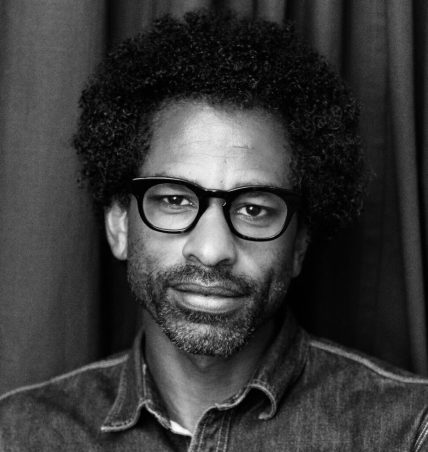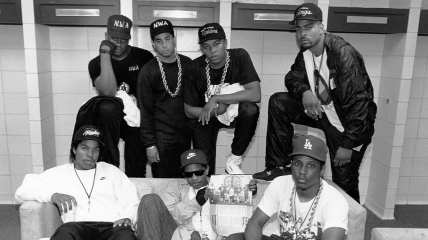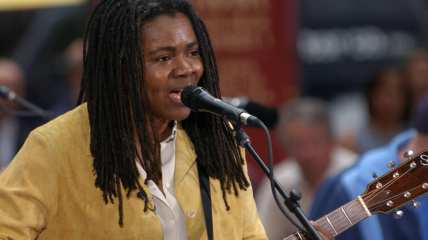‘Being Black: The ’80s’ final episode: Bob Marley was a psychic and that made his music deeper
OPINION: On "Being Black: The '80s," I dive into "Redemption Song" and Black determination.

Editor’s note: The following article is an op-ed, and the views expressed are the author’s own. Read more opinions on theGrio.
They say Bob Marley was a mystic. By that I mean, they said he could see into your future. His biographer, Roger Steffens, author of “So Much Things To Say,” came on my docuseries podcast “Being Black: The ’80s” to talk about Marley and how he could see into people’s past and their future. Even as a young person, Marley seemed to know things about people that shocked them.
Steffens told me, “I had numerous instances of people telling me about psychic experiences with him. The Jamaican writer Jeffrey Phelps met Bob for the first time and within five minutes, Bob was telling this guy his entire life story, and Jeffrey was so shaken by it that he began to tell people there was something else going on with this guy. Marley was 3 years old when he was reading the hands of people in his village. They said, there’s something otherworldly about him.”
Marley also knew things about his own future. Steffens said he knew he was going to die when he was 36. “People were saying, Bob, you’re gonna be a big star, you’re gonna have a long life, you’re gonna be rich, and Bob says, no, man. When I’m 36, I’m gonna die.” Three people told Steffens that when Marley was in his 20s, he prophesized that he would die at 36. He died of cancer in 1981. He was 36. Steffens said, “Why did he think he was gonna die at 36? He just knew. He was psychic.”
When you believe — or know — that Marley had some sort of supernatural connection then you understand why his music is so deep. He was communicating from another frequency. He was tapped into something deeper and that sense comes through in the music.
In the final episode of “Being Black: The ’80s,” I talk about Marley’s unforgettable “Redemption Song,” one of the greatest records of all time. In it, Marley tells the story of Black people stolen away from Africa — “Old pirates, yes they rob I, sold I to the merchant ships.” But despite our endless battle with oppression from white supremacy, Marley says we remain powerful because of our connection with God — “But my hand was made strong by the hand of the Almighty.” We have much to battle against — “How long shall they kill our prophets while we stand aside and look.” But our victory is inevitable because we are the chosen people — “We’ve got to fulfill the book.” In the song, Marley references our strength and our resilience. He has a soul-deep certainty that we shall overcome.
We need to hear about that soul-deep certainty because sometimes things seem rough and victory seems impossible. Our oppression is wearying. That’s why that notion of the inevitability of our eventual victory is a common theme in Black music from Sam Cooke’s 1964 classic “A Change Gonna Come” to Kendrick Lamar’s 2015 classic “Alright.” It’s also at the heart of Maya Angelou’s iconic poem “Still I Rise.” Black resilience is powerful. We are unbreakable. Sometimes our resilience is all we have but sometimes it’s all that we need. In the final episode of “Being Black: The ‘80s,” we go deep into Black resilience, including a sermon on the matter from the legendary Michael Eric Dyson.
I felt like this season’s journey through the ’80s needed to conclude with a discussion of Black resilience because our history is difficult; it’s x-rated at times because of hyperviolence against us; it’s a step forward and a step back, an achievement and then a backlash. But through it all, we have been fighters, we have been hopeful and we have been resilient. I know we will overcome someday because we are too resilient to be stopped forever.
We will be back soon with “Being Black: The ‘70s” and “Being Black: The ‘90s.”

Touré is a host and Creative Director at theGrio. He is the host of the docuseries podcast “Being Black: The ’80s.” He is also the host of the podcast “Toure Show” and the podcast docuseries “Who Was Prince?” He is the author of eight books including the Prince biography Nothing Compares 2 U and the ebook The Ivy League Counterfeiter.
TheGrio is FREE on your TV via Apple TV, Amazon Fire, Roku, and Android TV. Please download theGrio mobile apps today!


